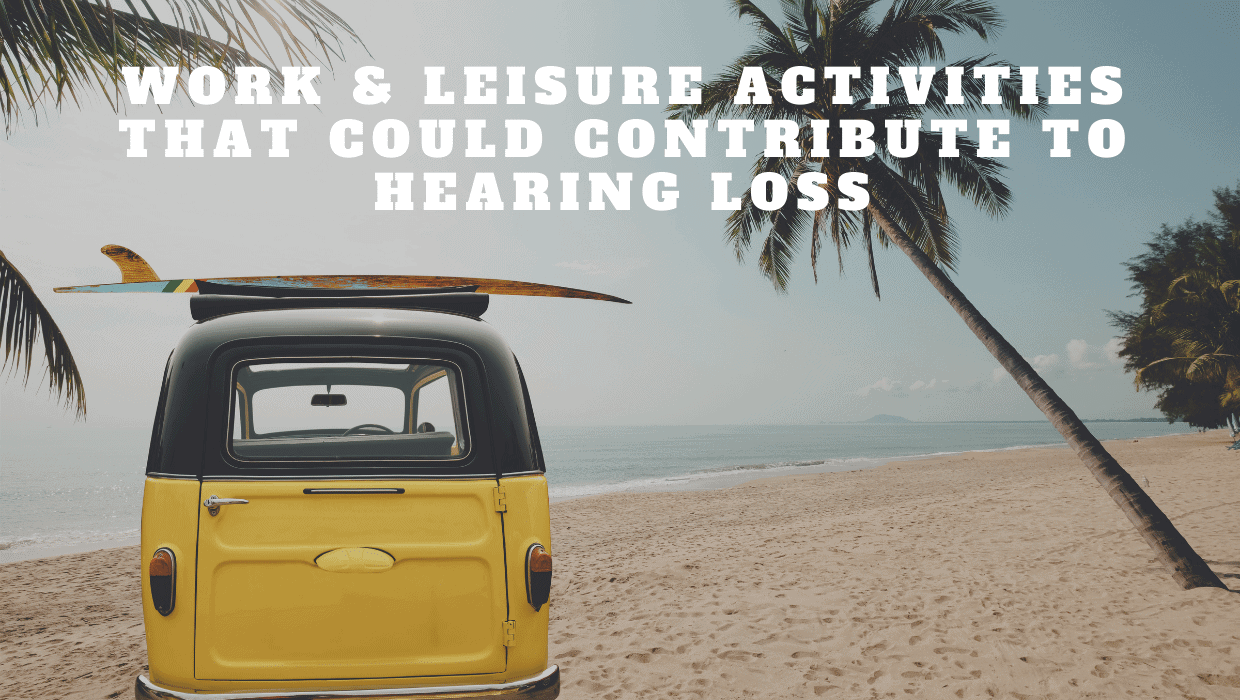
- Common Misconceptions That Delay Hearing Loss Diagnosis - June 6, 2025
- Signs Your Earwax Buildup Needs Professional Attention - May 29, 2025
- Preparing for a Hearing Test and What You Should Bring - May 16, 2025
Hearing loss is becoming more and more common as our world becomes louder and louder. While hearing loss can be caused by many different things, including head trauma, old age infections and certain medications, noise induced hearing loss affects people at all ages in high numbers. According to a 2017 analysis from a nationally representative health interview and examination survey reported that nearly one in four (24 percent) of U.S. adults aged 20 to 69 years displayed signs which suggested hearing damage from excessive noise.
What is excessive noise and when are you exposed to it?
Excessive noise can damage or destroy the tiny hairs called cilia in the inner ear, which send sound information to the brain. Once damage occurs it is irreversible. Sound levels are measured in decibels and any decibels over 85 can cause damage. The higher the decibel level, the less time it takes for damage to occur. For instance, in a workplace setting, if you are exposed to a level of 85 decibels for eight hours a day 40 hours a week, your hearing can incur damage over time. However as decibel levels rise to 130dBA and higher, damage can occur immediately. While work is a common place to come in contact with excessive noise it is often when we are relaxing and enjoying our favorite recreational activities in which we suffer the most damage.
Lawnmowers and leaf blowers
Whether you enjoy yard work or try to avoid it, it is something that many of us have to do. However the gas-powered engines can create decibel levels that can cause permanent damage to our ears. leaf-blowers at 50 feet range from 64 to 78 decibels, which is dangerous for your family and neighbors ears. In the operator’s ear, the noise can reach anywhere from 95 to 115 decibels.. Even if you use a much more quiet electric engine, hearing damage can be cumulative. It is important to be vigilant and wear hearing protection whenever you are working outside with this kind of equipment.
Headphones and earbuds
One of the most damaging activities, which people of all ages engage in, is using personal listen devices with headphones or earbuds. These devices allow us to listen to our favorite music, podcasts, radio or television without bothering others around us. However these personal listening devices can create decibel levels as high as 106 decibels, which can cause lasting damage. It’s not only the volume which is a problem but the length of listening time. These days, with endless streaming possibilities, it is seldom that we are ever at a loss for more audio information sent to our headphones. A safe practice for listening with headphones is to make sure that the volume is turned up to no more than 60% of its potential and make sure to take listening breaks every hour to give your precious ears a break.
Concerts and nightclubs
Most of us are probably not attending crowded music events and nightclubs currently. While this is disappointing for many, at least it is giving your ears a break. Crowded concerts and nightclubs, with many people shouting over very loud music can cause extremely loud listening environments, with decibel levels that have been known to exceed 120dBA. Next time you are at a concert or nightclub be sure to wear hearing protection. Make hearing safety a powerful fashion statement.
Motorcycle riding
If you love the thrill of riding on the open roads with the wind blowing past you, you might enjoy motorcycle riding. However it is important to consider hearing safety as much as you would consider wearing a motorcycle helmet. Decibel levels rise rather quickly as the sound of the engine mixes with traffic and the wind as you reach speeds up to 70 miles an hour. Make sure to wear earplugs when you ride to make sure your hearing stays healthy.
Have your hearing tested
Even if you are being careful hearing damage can be present and you might not know it. The sooner you diagnose and address hearing loss, the sooner you can find the best solution to help you hear. Contact us to set up a hearing test. When you deal with your hearing loss you can continue to enjoy the things in life that bring you joy for years to come.
